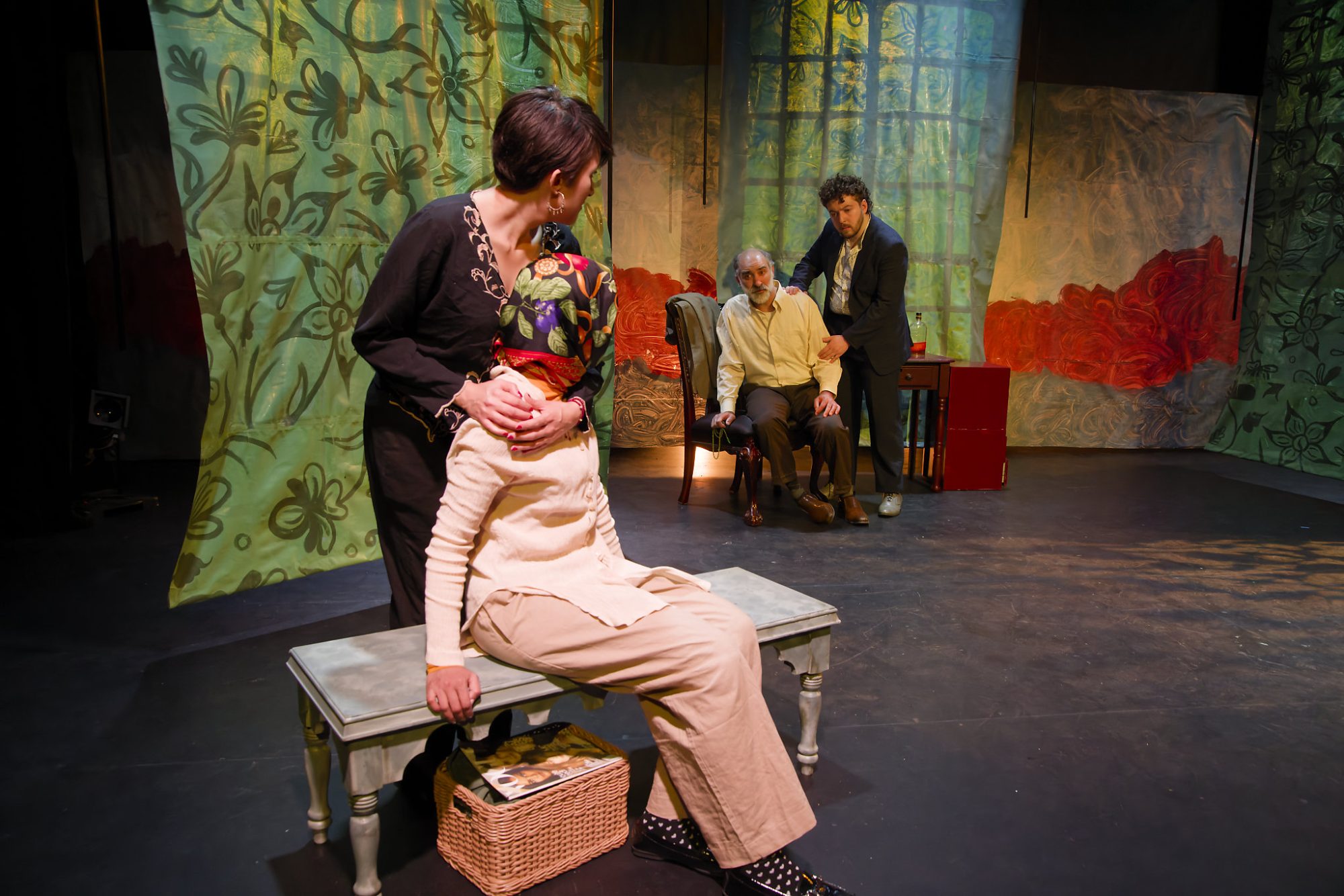Anahita is the name of an ancient Iranian goddess associated with water, fertility, healing, and wisdom. In Anahita’s Republic, the protagonist named after this goddess is also connected with water, and she swims, drinks, and floats around her Iranian compound in a bathing suit. While she is tied to the water, her brother, Cyrus, calls her a shark. She is cold and calculative in her ambitions, playing her brother and others to further the underground cause for women’s liberation. Even though she is named after this goddess associated with these qualities, Anahita herself is not a divine creature. She is strong willed and prideful, but she also has nightmares of drowning.
This play is a thriller filled with risk and nuance. The very image of a woman wearing a hijab, or the chador, can be controversial. Still, Anahita’s Republic pulls on and plays with it to explore the complex relationships and realities of women living in Iran. But the garment is not the only focus — it acts as a catalyst and a symbol, while the play itself is about the characters’ reactions to each other and their turbulent world.
Anahita is confident and bold, and Roya Yazdanmehr stands tall and proud in this role. As Anahita, she commands every scene and draws your eye every time she moves. Often, there is a pause, and the audience is left waiting in anticipation, captivated by her dominating presence. While her shark-like demeanour devours the stage and preys on the men, her relationship with Omid, played by Jennie George, shows a softer and more vulnerable side of her.
George as Omid is like a double-edged blade that manages to cut away audience expectations as each layer of this plot is revealed. At first, George is timid and polite in this role, appearing especially small on stage in comparison to Anahita. But the character grows in confidence, and soon Omid releases an emotionally charged onslaught that shakes the stage. George uses her voice and her movements brilliantly to tell the story of this transformation.
